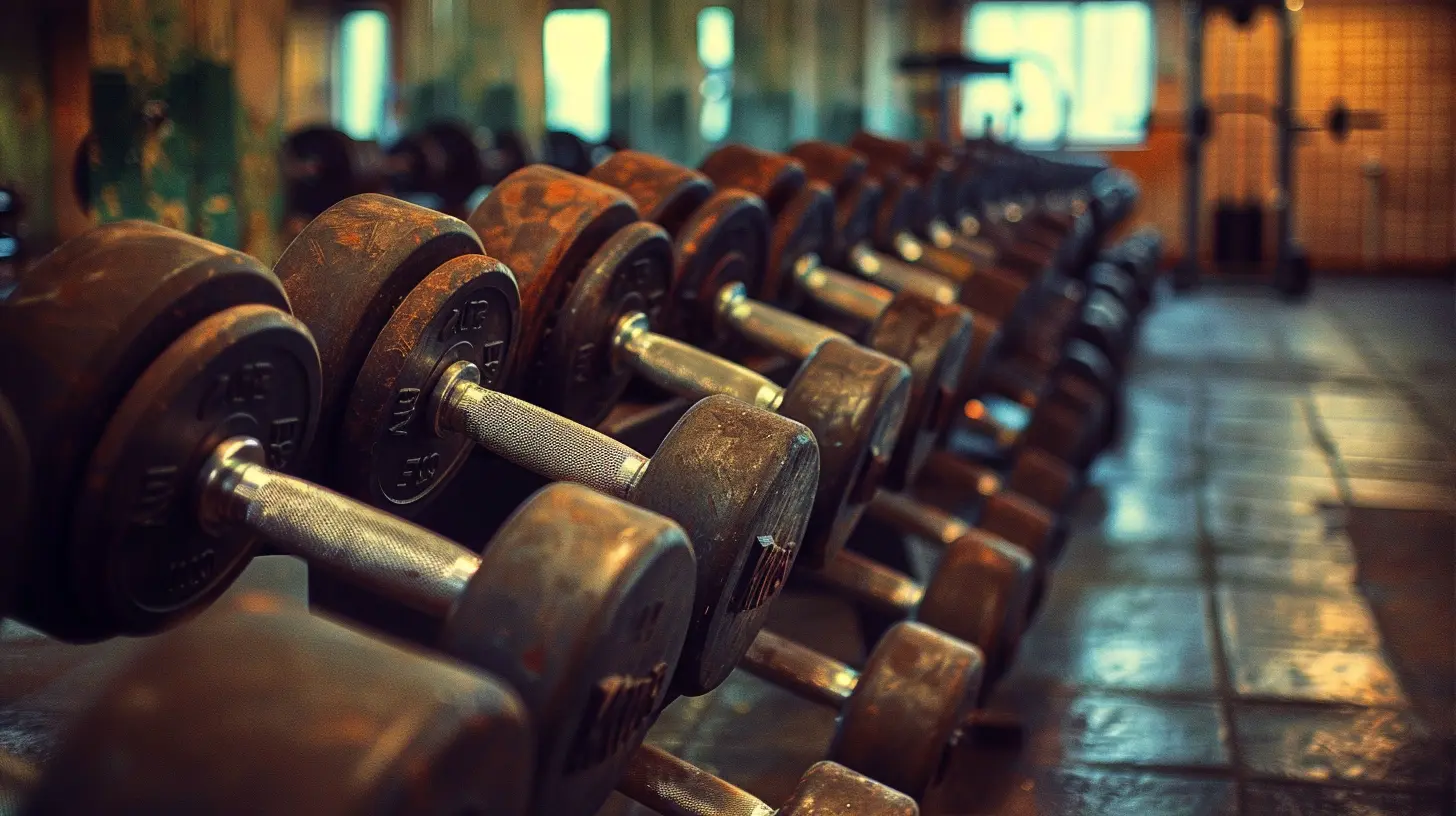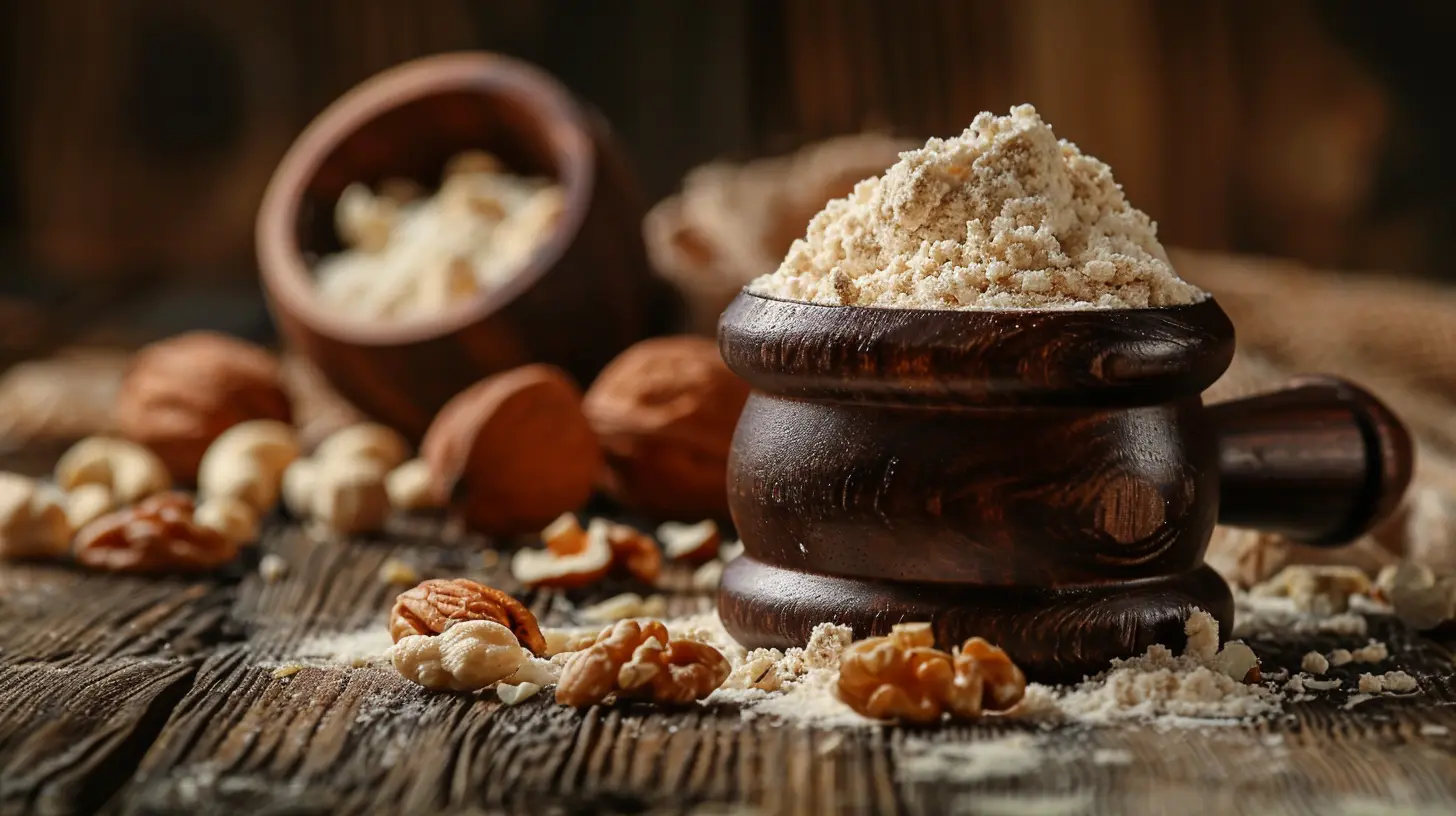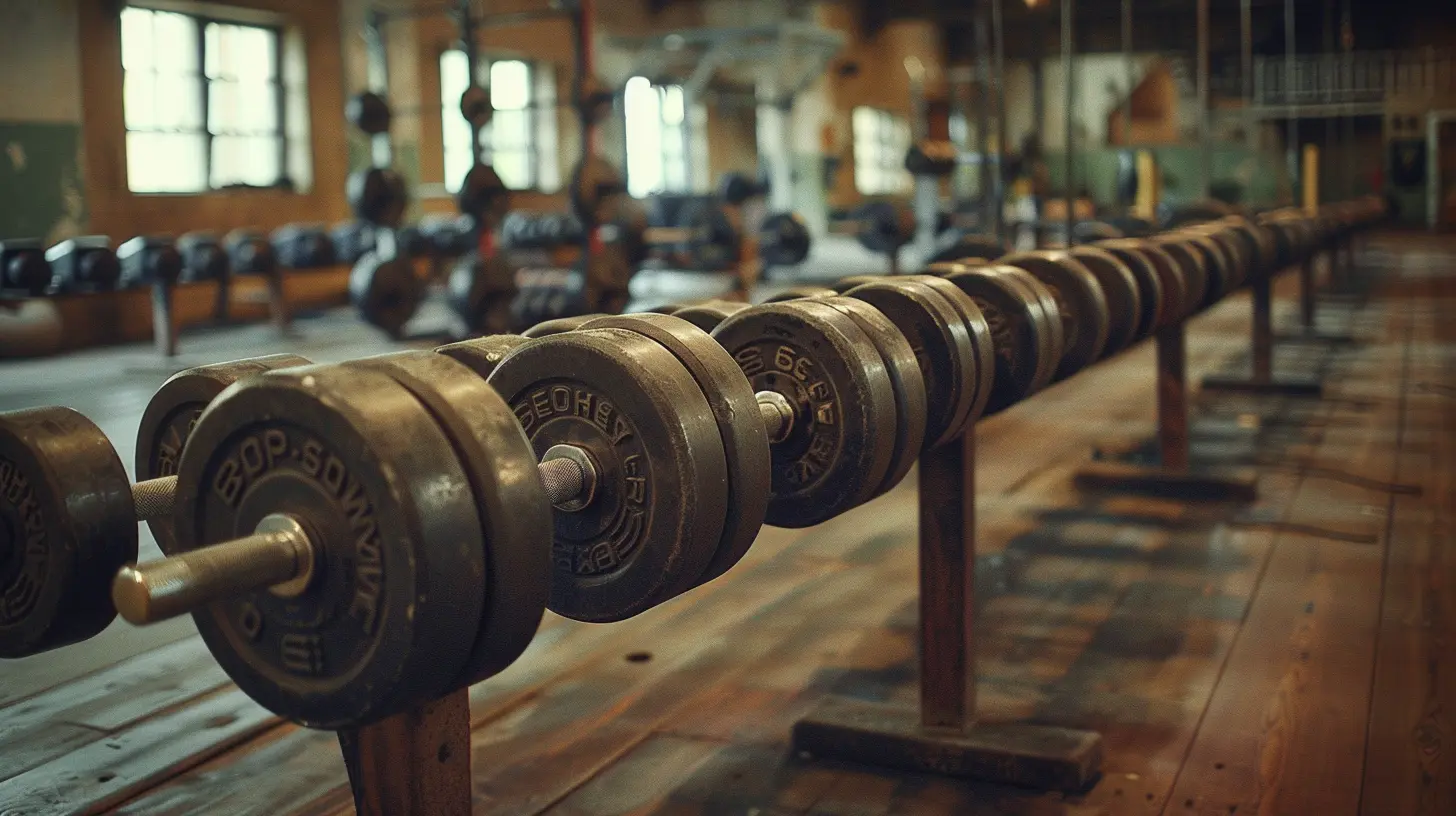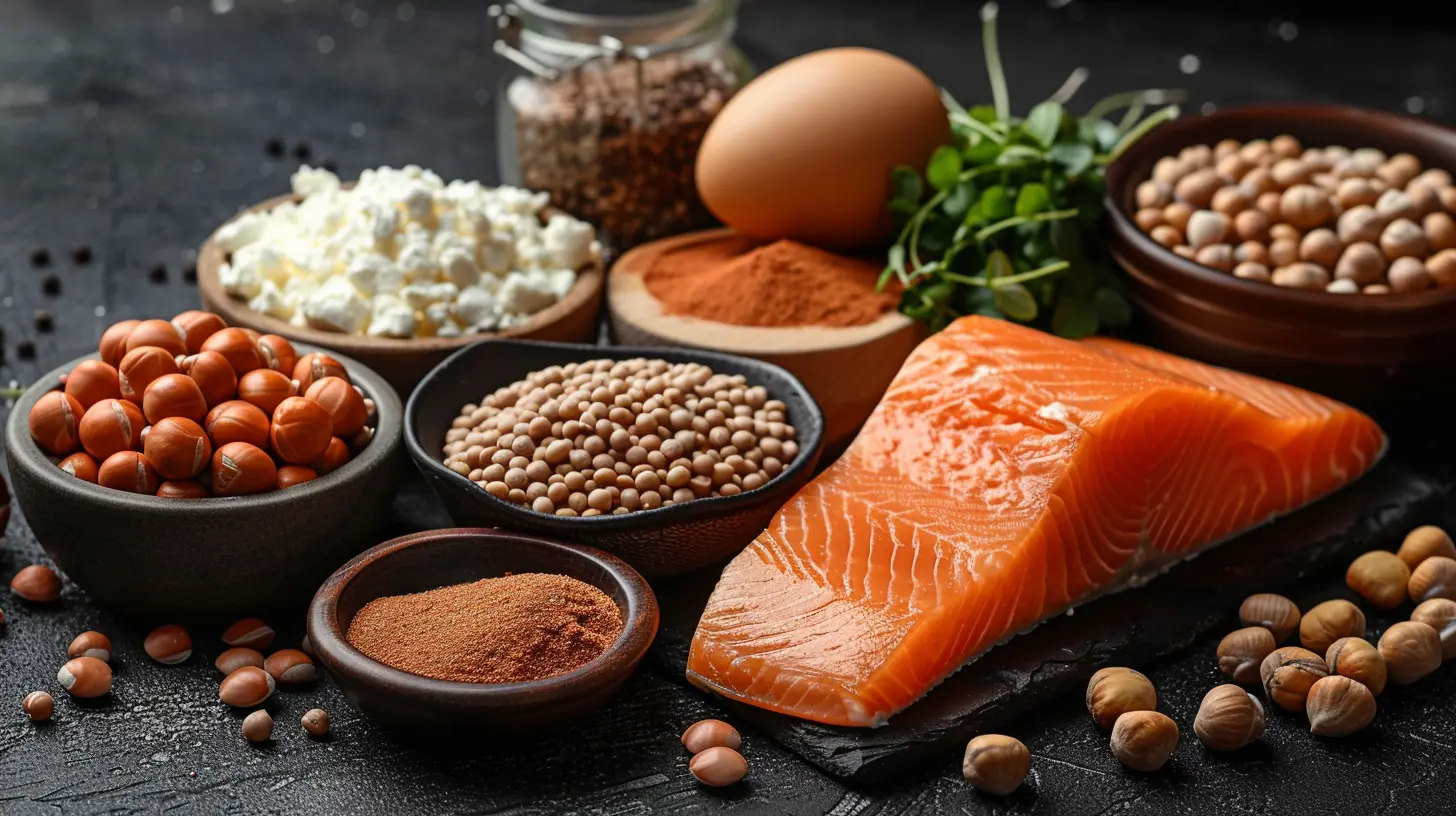6 April 2025
When it comes to gym training, there’s one word that’s constantly thrown around: protein. You’ve probably heard it a thousand times – “Make sure you’re getting enough protein!” Whether you're a seasoned gym-goer or just getting started, you’ve likely heard about the importance of protein for muscle recovery and growth. But why is this nutrient so critical, and what role does it really play?
In this article, we're going to dive into the nitty-gritty of how protein helps you bounce back after a tough workout and builds those muscles you’ve been working so hard on. Let’s break it down.

Why Protein Matters for Muscle Recovery
Before we get into the specifics, let’s take a step back and understand the basics. Every time you hit the gym, you’re essentially breaking down your muscles. That soreness you feel the next day? That’s your muscles recovering from the tiny micro-tears caused by lifting weights or doing resistance exercises.Now, your body has an amazing ability to repair and strengthen these muscle fibers, but it needs the right tools – and this is where protein comes into play.
The Building Blocks: Amino Acids
Protein is made up of smaller molecules called amino acids. Think of amino acids as the bricks, and protein as the cement that helps put everything together. Your muscles are like a house, and after every workout, some of those bricks get knocked out of place. To rebuild and make the house even stronger, you need more bricks and some good-quality cement.Amino acids, particularly the essential ones that your body can't produce on its own, are key players in muscle repair. They help stitch those muscle fibers back together and even make them stronger than before. This process is called muscle protein synthesis (MPS). Without enough protein in your diet, the healing process slows down, and muscle growth can come to a screeching halt.
Protein and Muscle Recovery: Timing Is Everything
So, when should you consume protein for optimal muscle recovery? Well, there’s a lot of talk about the so-called “anabolic window,” which is the idea that you need to consume protein within 30 minutes to an hour after your workout to maximize recovery.While there’s some truth to this, recent research suggests that the timing might not be as critical as once believed. What’s more important is your total protein intake throughout the day. As long as you're consistently consuming enough protein, your muscles will have what they need to repair and grow.
That said, having a post-workout protein shake or meal is still a great idea. It gives your body an immediate source of amino acids to kickstart the recovery process, and let’s face it – it doesn’t hurt to refuel after a tough session.

How Protein Fuels Muscle Growth
Alright, we’ve covered recovery, but what about growth?When you work out, you're not just aiming to repair damaged muscles – you’re looking to make them bigger and stronger. Protein plays a starring role in this process.
Muscle Protein Synthesis vs. Muscle Protein Breakdown
Here’s the deal: your muscles are in a constant state of flux. There’s a balance between muscle protein synthesis (MPS), which is the building of new muscle, and muscle protein breakdown (MPB), which is the breakdown of muscle tissue. To grow muscles, you want MPS to outweigh MPB, essentially creating a net positive balance.Protein is the fuel that tips the scales in favor of muscle growth. When you consume protein, your body gets the amino acids it needs to increase MPS and minimize MPB. In other words, protein is the key ingredient in making sure your hard work in the gym translates into tangible gains.
How Much Protein Do You Need for Muscle Growth?
This is the million-dollar question. How much protein should you actually be eating to support muscle growth?While everyone’s needs will be slightly different, a general rule of thumb is to aim for 0.8 to 1 gram of protein per pound of body weight. So, if you weigh 180 pounds, you should be consuming somewhere between 144 to 180 grams of protein each day.
Now, don’t panic! That might sound like a lot, but it’s totally doable. Spread your protein intake out across meals throughout the day, and you’ll be hitting your target in no time. Eggs at breakfast, chicken at lunch, steak at dinner, and maybe a protein shake or some Greek yogurt in between – you’ll be set.
Quality Matters: Not All Protein Is Created Equal
It’s also important to note that protein quality matters. You want to make sure you’re getting your protein from sources that are rich in essential amino acids, particularly leucine, which plays a critical role in muscle protein synthesis.Some of the best sources of high-quality protein include:
- Chicken and turkey
- Lean beef
- Fish and seafood
- Eggs
- Dairy products like milk, yogurt, and cottage cheese
- Plant-based sources like quinoa, tofu, and legumes (though these are typically lower in leucine)
If you’re vegan or vegetarian, don’t worry – it’s still possible to meet your protein needs. You might just need to be a little more strategic about combining different plant-based protein sources to ensure you’re getting all the essential amino acids.

Types of Protein and Their Impact on Muscle Recovery and Growth
You’ve probably noticed that there are different types of protein supplements on the market. So, are all proteins created equal, or do some work better for muscle recovery and growth than others?Let’s break down the most common types:
1. Whey Protein
Whey protein is probably the most popular protein supplement – and for good reason. It’s a complete protein, meaning it contains all the essential amino acids your body needs. Plus, it’s quickly absorbed, making it an ideal option post-workout. Whey is particularly high in leucine, which makes it a powerhouse for muscle growth.2. Casein Protein
Casein is another type of dairy-based protein, but it’s absorbed much more slowly than whey. This makes it a good option for taking before bed, as it provides a steady release of amino acids throughout the night, helping to support recovery while you sleep.3. Plant-Based Protein
For those who follow a plant-based diet, there are plenty of protein options like pea protein, hemp protein, and soy protein. While plant-based proteins can be lower in certain amino acids like leucine, they can still support muscle recovery and growth when incorporated into a well-balanced diet.4. Collagen Protein
Collagen protein has gained popularity recently, but it’s worth noting that it’s not a complete protein. While it can support joint and skin health, it’s not the best option if muscle recovery and growth are your primary goals.
Protein Myths and Misconceptions
Now that we’ve covered the essentials, let’s clear up a few common misconceptions about protein.1. More Protein = More Muscle
One of the biggest myths is that consuming excessive amounts of protein will automatically lead to more muscle. While protein is critical for muscle growth, there’s a limit to how much your body can use. Eating 300 grams of protein a day won’t give you Hulk-like muscles overnight. It’s all about balance – hitting your optimal intake without going overboard.2. You Need Protein Supplements to Build Muscle
Supplements can be helpful, but they’re not necessary. You can get all the protein you need from whole foods like chicken, fish, eggs, and legumes. Protein powders are just a convenient way to hit your daily intake, especially if you’re on the go or have trouble eating enough protein from food alone.3. Protein Will Make You Bulky
This is a common concern, especially among women. But don’t worry – consuming protein won’t make you bulky overnight. Muscle growth is a slow process, and building significant muscle mass requires both consistent training and the right nutrition over time.Conclusion: Protein Is Your Muscle’s Best Friend
At the end of the day, protein is the unsung hero of muscle recovery and growth. Without it, your muscles wouldn’t have the raw materials they need to repair after a workout, let alone grow stronger. Whether you’re aiming to get ripped or just want to recover faster after hitting the gym, making sure you’re getting enough protein should be a top priority.Remember, it’s not just about guzzling down protein shakes – focus on a well-rounded diet rich in high-quality protein sources, and don’t stress too much about the timing. As long as you’re hitting your protein goals consistently, your muscles will thank you.
So, next time someone tells you to “eat more protein,” you’ll know exactly why!





Elle McKnight
Essential for optimal recovery and growth!
April 14, 2025 at 11:08 AM